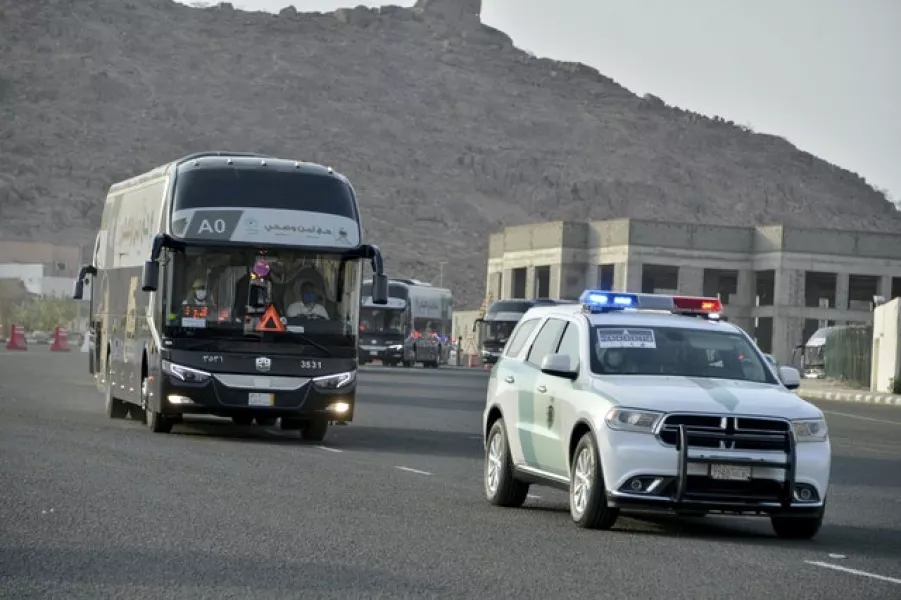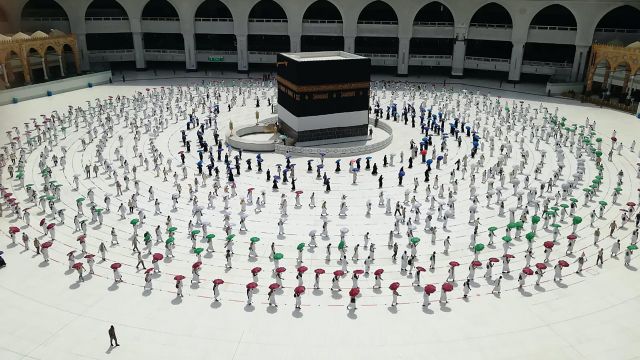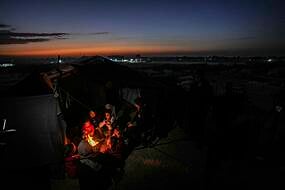The hajj is one of Islam’s most important requirements, performed once in a lifetime. It follows a route the Prophet Mohammed walked nearly 1,400 years ago and is believed to ultimately trace the footsteps of the prophets Ibrahim and Ismail, or Abraham and Ishmael as they are named in the Bible.
The hajj, both physically and spiritually demanding, is intended to bring about greater humility and unity among Muslims.

Rather than standing and praying shoulder-to-shoulder in a sea of people from different walks of life, pilgrims this year are social distancing – standing apart and moving in small groups of 20 to limit exposure and the potential transmission of coronavirus.
The pilgrimage is a journey that Muslims traditionally experience with relatives. In past years, it was common to see men pushing their elderly parents around on wheelchairs in order to help them complete the hajj, and parents carrying children on their backs. The communal feeling of more than 2.5 million people from around the world – Shiite, Sunni and other Muslim sects – praying together, eating together and repenting together has long been part of what makes hajj both a challenging and rewarding experience like none other.
This year, however, pilgrims are eating prepackaged meals alone in their hotel rooms and praying at a distance from one another. The Saudi government is covering all the pilgrims’ expenses of travel, accommodation, meals and healthcare.
While the experience is starkly different, it remains an opportunity for pilgrims to wipe clean past sins and deepen their faith.

For the first time in Saudi history, the government barred Muslims from entering the kingdom from abroad to perform the hajj in order to limit exposure of coronavirus.
Instead, as few as 1,000 people already residing in Saudi Arabia were selected to take part in the hajj this year. Two-thirds are foreign residents from among the 160 different nationalities that would have normally been represented at the hajj. One-third are Saudi security personnel and medical staff.
The pilgrims, who were selected after applying through an online portal, were required to be between the ages of 20 and 50, with no terminal illnesses and showing no symptoms of the virus. Preference was given to those who have not performed the hajj before.
Pilgrims were tested for coronavirus, given wristbands that connect to their phones and monitor their movement and were required to quarantine at home and in their hotel rooms in Mecca ahead of the start of the hajj. They will also be required to quarantine for a week after the hajj concludes on Sunday.
Mecca was sealed off for months ahead of the hajj, and the smaller year-round Umrah pilgrimage was suspended earlier this year, with pilgrims already in the city at that time flown back home.







